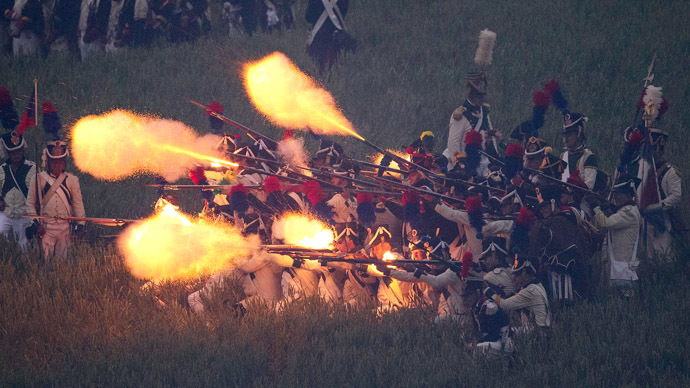Waterloo & Vienna: Learning from history

As the celebrations of the 200th anniversary of the Battle of Waterloo have just concluded in Europe and Britain, it is time to reflect on the legacy of the turbulent era that ended in 1815.
The popular memory of European nations preserves the battles fought during the Napoleonic wars – Trafalgar, Austerlitz, Borodino, Leipzig, Waterloo to name the key ones – but, regretfully, not the peace that followed and that was conceived at the Congress of Vienna, which agreed its decisions several days prior to the decisive battle.
The grand diplomatic gathering did not only redraw borders of the traumatized continent. It designed the first collective security system that guaranteed peace in Europe for decades to come.
At the Congress, the so called Concert of Europe was established – balance of power maintained by agreement among the leading nations: Russia, Great Britain, Austria, Prussia and France. Just like Russia had contributed to the military victory over Napoleon in the campaigns of 1812 and 1813-1814, the Russian Emperor Alexander I made a crucial contribution to the Congress by his vision of a fair and sustainable settlement in Europe, which brought France as an equal power to the Concert of Europe.
In Vienna, the monarchs and their ministers realized that peace could only be maintained through continued diplomatic interaction and coordination of the major powers. They were guided by magnanimity and foresight, born at the age of Enlightenment. The next years saw a number of pan-European congresses, and in Vienna the first-ever permanent intergovernmental organization was established – the Central Commission for Navigation on the Rhine, which is still in existence today.
READ MORE: Brexit rebellion? Eurosceptic Tory & Labour MPs unite over EU referendum date
These were the first steps which, 130 years later, led to the creation of the United Nations.
Significant effort was made in Vienna to create a peace in which all countries’ interests would be protected. Notably, the Duke of Wellington vigorously insisted that France should have equal rights with other major nations. This was a striking contrast with the flawed Versailles system, which humiliated and excluded both Germany and Russia. The tragic consequences of such settlement were foreseen early on by John Maynard Keynes in his 1919 book entitled ‘The Economic Consequences of the Peace’.
The system created in Vienna was far from perfect. It did not take peoples’ right to self-determination into account, while rivalry between its founding members led to the senseless Crimean War and sowed the seeds of the First World War.
The UN Charter laid the foundation for a world system of collective security. However, nothing was done for a Europe divided between two opposing alliances. The end of the Cold War provided an opportunity to fix that flaw, but it was missed and inevitably led to the present state of European affairs.
It’s not too late yet to learn from history and agree to a post-Cold War settlement, which would save us a lot of trouble and lost opportunities in a radically-changed global environment.
The statements, views and opinions expressed in this column are solely those of the author and do not necessarily represent those of RT.
The statements, views and opinions expressed in this column are solely those of the author and do not necessarily represent those of RT.













